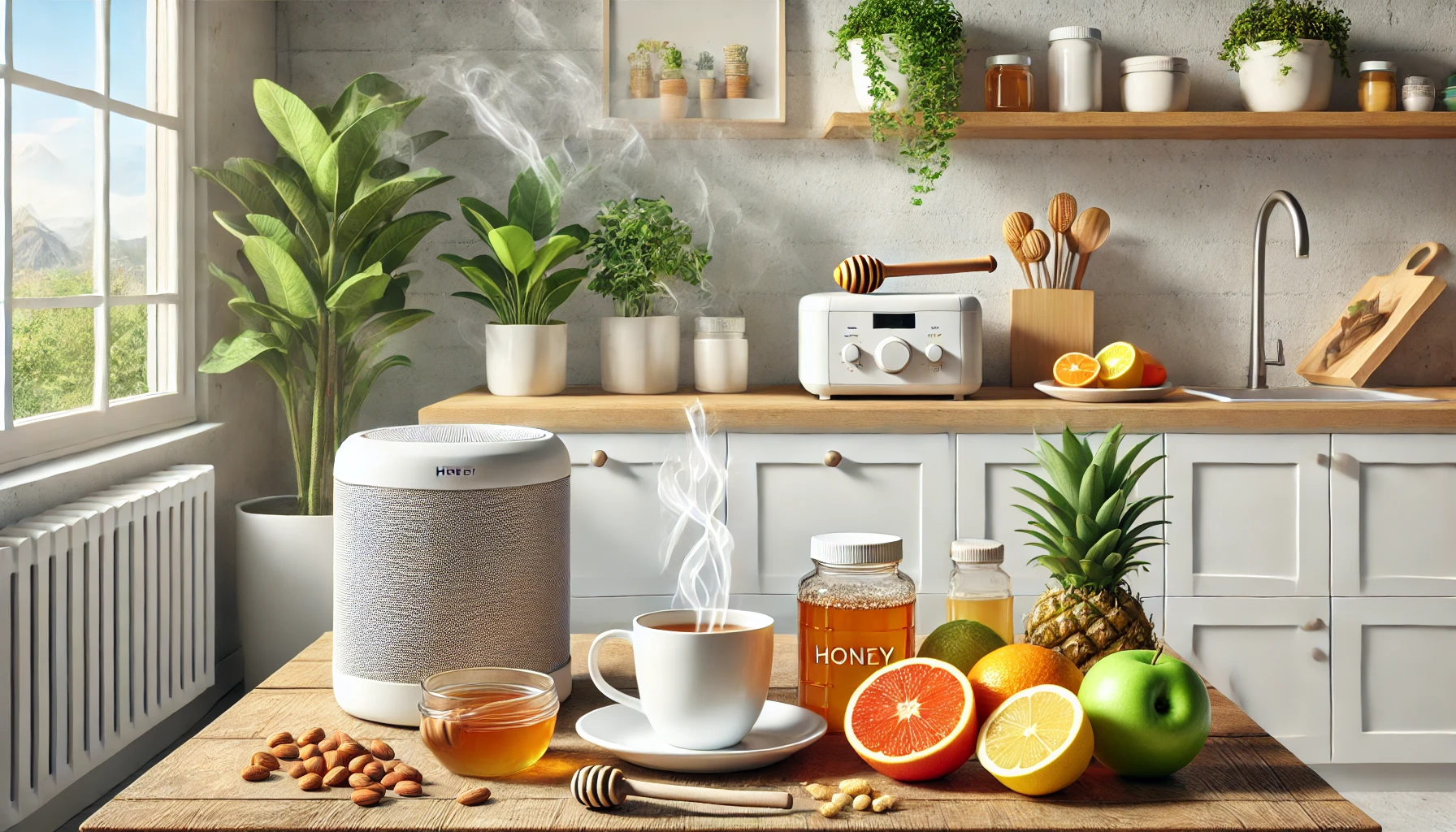Introduction
Allergies occur when the immune system overreacts to harmless substances such as pollen, dust, pet dander, or certain foods. Instead of ignoring these triggers, the body misidentifies them as threats and releases histamine, leading to sneezing, itching, congestion, and inflammation.
But why do some people develop allergies while others don’t? And how can you naturally strengthen your immune system to reduce allergic reactions?
In this article, we will explore the connection between allergies and immunity, what weakens immune tolerance, and how to build stronger defenses against allergens.
1. Why Do Allergies Happen?
An allergic reaction is an overactive immune response. Instead of protecting the body from harmful invaders like viruses and bacteria, the immune system mistakenly identifies harmless substances as threats and launches an attack.
🔹 Common Allergy Triggers:
✔ Pollen – Seasonal allergies (hay fever). ✔ Dust mites and mold spores – Common indoor allergens. ✔ Pet dander – From cats, dogs, and other animals. ✔ Certain foods – Nuts, dairy, shellfish, gluten. ✔ Insect stings and medications – Can trigger severe allergic reactions.
📌 Fact: Studies show that allergies have increased significantly in recent years, likely due to higher pollution levels, processed diets, and disruptions in gut health.
2. How Allergies and Immunity Are Connected
A balanced immune system should be able to tolerate harmless substances. However, several factors can increase the risk of allergies, including:
✔ Weakened Gut Health – Around 70% of immune cells reside in the gut, meaning a disrupted gut microbiome can increase sensitivity to allergens. ✔ Chronic Inflammation – Persistent inflammation causes the immune system to become overactive, leading to stronger reactions to allergens. ✔ Vitamin Deficiencies – Low levels of Vitamin D, Omega-3s, and Magnesium have been linked to increased allergy risk and poor immune regulation. ✔ Overuse of Antibiotics and Medications – These can disrupt gut bacteria, weakening immune tolerance and making allergic reactions more frequent.
📌 Fact: Research suggests that children who grow up in overly sanitized environments may have a higher risk of developing allergies because their immune system is not exposed to enough microbes early in life.
3. How to Strengthen Your Immune System Against Allergies
1. Improve Gut Health
A healthy gut helps regulate immune responses and prevent excessive allergic reactions.
🥗 Best Gut-Boosting Foods: ✔ Probiotic-rich foods – Yogurt, kefir, sauerkraut, kimchi. ✔ Prebiotic fibers – Garlic, onions, asparagus, bananas. ✔ Fermented foods – Kombucha, miso, tempeh.
🚨 Avoid: Processed foods, excess sugar, and artificial additives, which can worsen inflammation and weaken gut bacteria.
2. Increase Anti-Inflammatory Nutrients
✔ Vitamin D – Regulates the immune system (found in salmon, eggs, and sunlight). ✔ Omega-3 Fatty Acids – Reduce inflammation (found in fatty fish, flaxseeds, walnuts). ✔ Quercetin – A natural antihistamine (found in apples, onions, green tea).
📌 Tip: If you suffer from allergies, consider Vitamin D supplementation, especially in winter months when sun exposure is limited.
3. Reduce Histamine-Producing Foods
Histamine is the chemical responsible for allergy symptoms. Some foods naturally contain higher levels of histamine, making allergies worse.
🚨 Limit These Foods: ❌ Aged cheeses and fermented foods (high in histamine). ❌ Alcohol, especially wine and beer. ❌ Processed meats and canned foods.
✔ Instead, opt for fresh, whole foods that help regulate histamine levels.
4. Stay Hydrated
✔ Drinking enough water flushes allergens out of the body and keeps mucous membranes moist, reducing irritation. ✔ Herbal teas like peppermint, ginger, or chamomile have natural anti-allergic properties.
📌 Tip: Aim for 2–3 liters of water per day to maintain optimal hydration and help detoxify allergens.
5. Manage Stress Levels
✔ Chronic stress weakens the immune system, making allergy symptoms worse. ✔ Try deep breathing, meditation, or gentle exercise to reduce inflammation and improve immune function.
📌 Fact: Stress increases cortisol levels, which can exacerbate allergic reactions by keeping the immune system in a heightened state of alert.
4. Natural Remedies for Allergy Relief
If you experience allergy symptoms, natural remedies can help provide relief without side effects.
🌿 Best Natural Allergy Remedies: ✔ Local raw honey – May help desensitize the body to pollen. ✔ Nettle tea – A natural antihistamine that reduces inflammation. ✔ Saline nasal rinse – Clears allergens from nasal passages. ✔ Essential oils (eucalyptus, peppermint, lavender) – Help open airways and ease congestion.
📌 Tip: At the first sign of allergy symptoms, increase quercetin-rich foods and drink nettle tea for natural relief.
5. When to Seek Medical Help
While natural remedies help many people, some allergy symptoms require medical attention. Seek a doctor if you experience:
🚨 Severe allergic reactions: ⚠ Difficulty breathing or wheezing. ⚠ Swelling of the face, lips, or throat. ⚠ Anaphylaxis (a life-threatening allergic reaction).
📌 If your allergies interfere with daily life, an allergist can recommend testing, immunotherapy, and targeted treatments.
6. Long-Term Benefits of Strengthening Immunity Against Allergies
By improving your immune system and reducing inflammation, you’ll experience: ✔ Fewer and less severe allergy symptoms. ✔ Less reliance on medications like antihistamines. ✔ Better respiratory health and easier breathing. ✔ Stronger overall immunity against colds and infections.
📌 Fact: Research on Blue Zones (regions where people live the longest) suggests that strong gut health, low stress levels, and exposure to natural environments contribute to better immune balance and lower allergy rates.
Conclusion: Balance Your Immune System to Reduce Allergies
Allergies are often a sign of an imbalanced immune response, but you can train your body to be less reactive by supporting gut health, reducing inflammation, and strengthening your immunity.
✔ Key Takeaways: ✅ Eat anti-inflammatory and probiotic-rich foods to support gut health. ✅ Stay hydrated and reduce histamine-triggering foods. ✅ Manage stress levels to prevent excessive immune reactions. ✅ Use natural remedies like nettle tea, honey, and essential oils.
🔹 What allergy triggers affect you the most? Try these strategies and see how your body responds! 🌿💪
